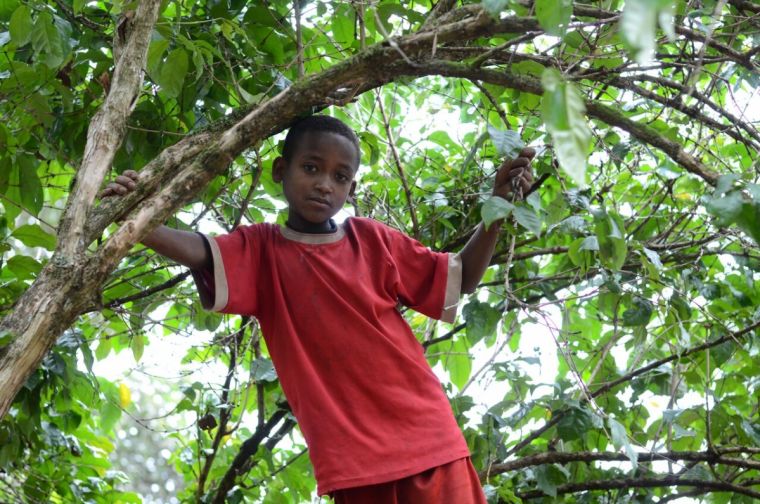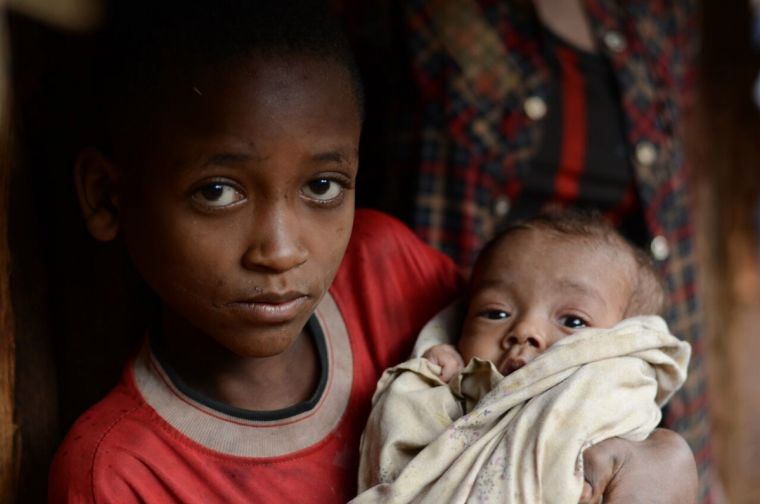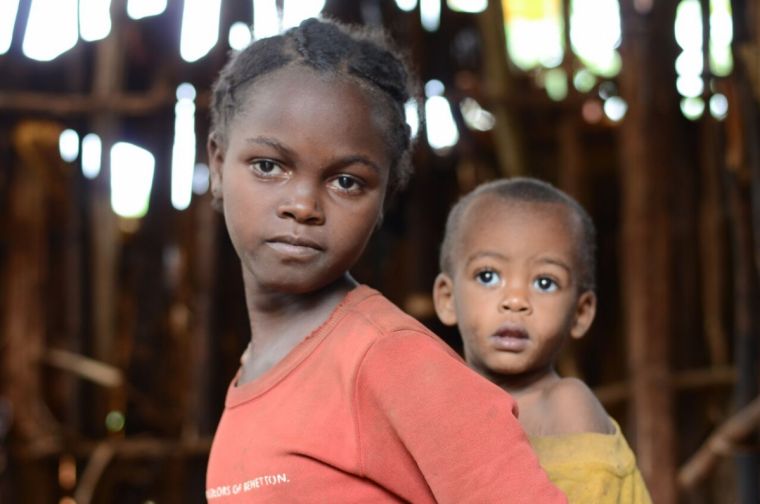Back to school, but not for all: How this boy is coping with Ethiopia's hunger crisis, with help from World Vision
My six-year-old nephew has just started Grade 1. He had his first day of school outfit picked out weeks in advance: a blue t-shirt and an orange pair of shorts. He's got a new pencil case, a new lunch box and a new pair of shoes.
The place my nephew was born in enables him to get excited about lessons of addition and reading, about lunchboxes with sandwiches and fruit and playground games of tag.
In other corners of the world, children are not so lucky.
Earlier this month, I met 11-year-old Joseph in southwestern Ethiopia. Although he enrolled in Grade 1 a few years ago, he never completed it.
Drought hit Joseph's community, and his parents, who are coffee farmers, were affected. The coffee trees had just a few ripe coffee cherries when it was time to harvest. The money the family normally earned from the sale of their coffee wasn't enough to buy food. Instead, Joseph's mother and father had to take construction jobs, building mud walls in the nearby town.

When Joseph's mum became pregnant, she wasn't able to work in the final months of pregnancy. Being the oldest child, Joseph was plucked from class and sent to work picking coffee for a few neighbours. He climbed trees, picking the little red cherries of coffee from sunrise to sunset. For his work, he earned $0.30 (US) per day, money he gave to his parents to buy beans or flour so that his family of five could eat.
Shortly after Joseph's mum gave birth, she was able to go back to work as a farm labourer. Instead of picking coffee, Joseph was tasked with looking after his little brother while his mum was away.
'I play with him, I help my mom take care of him,' Joseph says.
But Joseph hasn't been able to figure out what to do when baby Maluken cries. The baby gets too hungry during the day when his mum is away. He won't stop crying and there is little Joseph can do about it.
Maluken is now nine-months old but is only 3.4 kgs. He can't sit up. A recent trip to the health clinic revealed that Maluken was far too small for his age – he was identified as severely malnourished. The health staff were worried that he might die if he didn't get immediate nutritious food.

Joseph has already lost a younger brother. His mum says the one-year-old boy died due to diarrhea and vomiting.
When the health staff identified Maluken as malnourished, they quickly put the baby on an emergency nutrition programme. Maluken was given packages of Plumpy'Nut, a peanut butter paste that has rich proteins, minerals and nutrients included in it to help children quickly gain weight and end the risk of death.
Baby Maluken has started taking the paste and smiles when he eats it. But his brother is still worried.
'I want him to be a healthy boy,' Joseph says.
Meanwhile, Joseph is hoping this year's coffee harvest is better and that his family can finally afford enough food, so that he might be able to go back to school. He's envious of his peers who are able to get an education.
'I see them getting ready for school. They are learning but I'm not learning anything,' Joseph says.
Down the road from Joseph's house, 10-year-old Marta is in a similar situation. She too is out of school, babysitting her younger brother instead.
Marta's mum and dad recently separated. Marta's mum is a coffee farmer too, but like Joseph's family, the coffee trees didn't produce enough last year and their family suffered.
'We don't get enough food,' says Marta while carrying two-year-old brother Abush on her back.
Marta's mum goes out to work every day to make sure the Marta and five siblings have enough food to eat, leaving Martha to care for Abush.

And yet, despite Marta's best efforts, Abush is malnourished. He too is on an emergency nutrition program where he eats Plumpy'Nut to try to gain weight and become healthy.
The lack of rain has led more than 500 other children in this community to become severely malnourished, too.
World Vision is responding to the hunger crisis in this part of Ethiopia, along with similar crises in Kenya, Somalia and South Sudan. More than 1.4 million children are out of school due to the hunger crisis across the Horn of Africa.
The aid agency is helping deliver food assistance to thousands of families who are in crisis. World Vision nurses are also partnering with local health workers to provide training so that malnourished children are given the best possible care and treatment.
To address the situation for the longer term, World Vision is also helping mothers with children under age 5 form gardening groups and savings clubs. This means that families are no longer relying on a single crop and have enough money set aside for times when weather causes difficulties.
Still, I find myself worried about the children who I have met. I wish they too could be excited about the upcoming school year, about lunch boxes full of food and playing with friends, instead of worrying about how their younger siblings will survive.
Mark Nonkes is World Vision's East Africa Hunger Crisis Response Communications Director. Find out more about World Vision's work in East Africa here. Follow on Twitter @WorldVisionUK.











